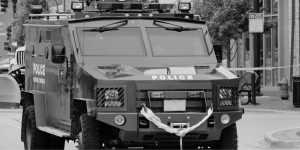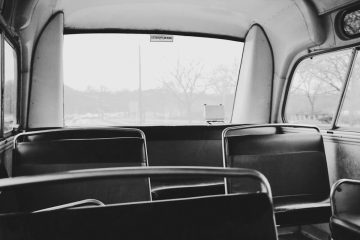What Happened On June 12th?
On the night of June 12, 2016 in Orlando, Florida, the Pulse Nightclub, known for its inclusive and lively atmosphere, became the site of a devastating mass shooting. Unfortunately, on this night, 49 people were killed and many more were injured.
The Joyous Pulse Nightclub
Established in 2004 by Barbara Poma and Ron Legler, the Pulse Nightclub was a sanctuary for Orlando’s LGBTQ+ community. Named in honor of Poma’s brother, who died of AIDS, Pulse quickly became a symbol of love, acceptance, and unity. The club provided a welcoming environment where all could celebrate their identities without fear of judgment.
On the night of June 12th, the club hosted its popular Latin Night. In turn, this drew a large crowd of patrons eager to dance and enjoy the vibrant atmosphere. The music pulsed with energetic beats, and the dance floor swelled with people moving in unison.

The Night of Horror
As the clock approached 2:00 AM, the celebration inside Pulse Nightclub turned into chaos. Omar Mateen, a 29-year-old security guard, entered the club armed with a rifle and a handgun. Without warning, he began firing into the crowd, unleashing a torrent of bullets that turned the lively dance floor into unimaginable horror.
Mateen, who had pledged allegiance to ISIS during a 911 call made from inside the club, methodically moved through the venue, targeting anyone in his path. The initial burst of gunfire killed many instantly, while others desperately sought cover or attempted to escape. Survivors later recounted the terrifying ordeal, describing how they hid in bathrooms, behind furniture, or played dead to avoid detection.
Courage Amidst Chaos
The first 911 call reporting the shooting came in at 2:02 AM, prompting a swift response from law enforcement. Orlando police officers arrived on the scene within minutes, engaged Mateen in a gunfight, and successfully forced him to retreat deeper into the club. Over the next three hours, a tense standoff ensued, during which Mateen took several hostages and continued to sporadically fire at those still trapped inside.
Amidst the chaos, acts of heroism shone through. Club patrons and staff risked their lives to help others escape, dragging wounded friends to safety and providing first aid where possible. Outside, police and paramedics worked tirelessly to evacuate the injured, transport them to hospitals, and establish a perimeter around the club.

At 5:00 AM, the Orlando police SWAT team breached the building using an armored vehicle, created an escape route for hostages, and confronted Mateen in a final exchange of gunfire. Mateen was shot and killed, bringing the nightmare to an end. The rescue operation saved numerous lives, but the toll was staggering: 49 people dead and 53 wounded.
How Florida Felt
In the days that followed, the Orlando community grappled with the profound grief and trauma left in the wake of the Pulse Nightclub shooting. Vigils and memorials sprang up across the city, as thousands gathered to honor the victims and support the survivors. The names and faces of those lost were shared widely, each story a reminder of the vibrant lives cut short by senseless violence.
The Pulse Nightclub shooting also sparked a nationwide conversation about gun control, terrorism, and LGBTQ+ rights. Politicians, activists, and ordinary citizens called for stricter gun laws and measures to prevent future acts of violence. The tragedy emphasized the need for greater acceptance and protection of marginalized communities, as well as the ongoing battle against hate and extremism.
What Next?
Despite the devastating loss, the Orlando community demonstrated resilience in the face of tragedy. Barbara Poma, the club’s co-founder, vowed to transform Pulse into a memorial and museum to honor the victims and educate future generations about the importance of love and acceptance.
This vision led to the establishment of the onePULSE Foundation, dedicated to preserving the legacy of Pulse Nightclub and supporting the families and survivors affected by the shooting. Surprisingly, Poma had considered closing Pulse before the shooting, but the tragedy cemented her resolve to turn it into a beacon of hope.
In the years since the attack, Pulse has become a symbol of solidarity and strength. Annual remembrance events drew thousands, while the LGBTQ+ community continued to advocate for equality and justice. At the end of the day, the tragedy of the Pulse Nightclub shooting reminds us of the enduring power of love and the collective resolve to overcome hate.
Why do you think there are so many shootings? What can we do to do better?





